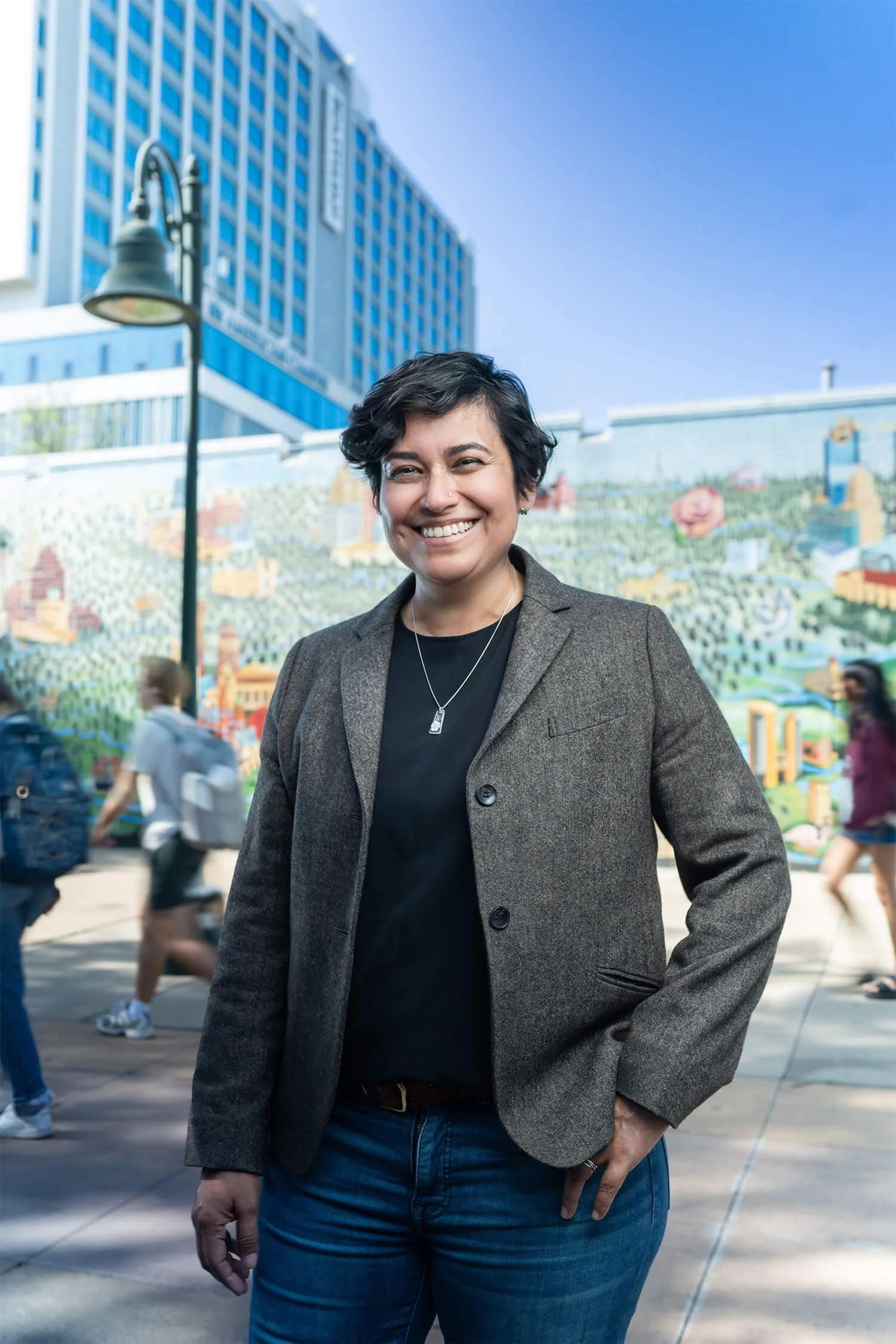Training a New Generation in Public Health
Credit: Tico Mendoza
SONIA GONZÁLEZ, Ph.D. (B.A. ’99)
Sonia González is an assistant professor of instruction and director of UT’s Public Health program.
Interviewed by Sowmya Sridhar.
What sparked your interest in public health?
It was purely accidental. I was an undergraduate student at UT studying in the Union, and a guy asked me to sit in on an info session. He was recruiting volunteers for a project serving young, runaway and throwaway LGBTQ youth; that would later become my AmeriCorps site. They were mostly young, gay men who were being kicked out of their homes after they came out. I joined the project and fell into doing work concentrated in HIV-prevention education and awareness. As an AmeriCorps member, I was given a stipend, which I used to study public health in the Dominican Republic. There, I delivered an educational community talk on HIV/AIDS prevention, conducted meningitis surveillance and did health outreach in the countryside.
How have you combined your interests in public health and technology?
After I earned my master’s degree in public health, I was the program coordinator of a research project in New York focused on HIV and drug abuse prevention. I was training teens to educate their peers about these issues, but I was losing their attention because they couldn’t detach from their phones. I started thinking about ways to reach them where they were. Through the doctoral public health program at the City University of New York and the Interactive Technology & Pedagogy certificate program, I learned how to bridge the health and tech worlds to create a digital health solution grounded in equity. I produced an app with sexual health information and resources for 18- to 25-year-olds.
“I learned how to bridge the health and tech worlds to create a solution grounded in equity.”
How do your experiences from before you joined the UT faculty inform your work with students now?
One example is I co-founded a Young Women of Color HIV/AIDS Coalition. We worked with 25 young women, aged 18 to 24, to amplify their voices. We helped bring to fruition the initiatives that they thought might be helpful. This was all coupled with evidence-based practices. We were able to execute different community projects, ranging from passing out condom bags to working with local clubs to offer on-site HIV and STI testing. Years later, UT students get to benefit from experiences like these. Essentially, our students learn from public health practice, and they get to transfer what I and other faculty have learned into their own education.
What’s your vision for the public health major at UT?
I’m incredibly proud to be training the next generation of public health practitioners, researchers and providers. My vision is to continue the work my colleagues established. Our degree offers a strong foundation so that students can explore where they fit in the public health ecosystem. We train well-rounded public health students. I think that we also do a good job of creating a sense of community and belonging. It’s important to me that our students feel like they have a guiding light and have a strong sense of who they are as individuals and what their values are to inform their future work. This is a gift I received during my time as an undergraduate student at UT and one that I hope our public health students walk away with.

